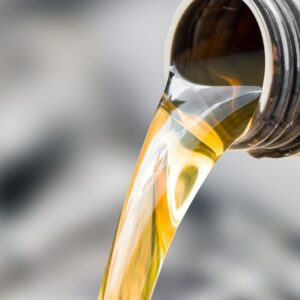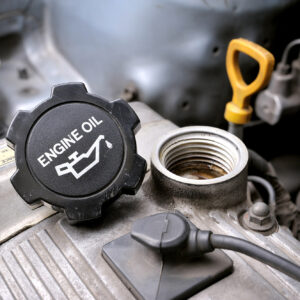Is your car putting on the years? In particular, its engine will deliver reduced performance because of worn older parts. If you want to keep driving your vehicle for many more years, you must give it special care.
One of the things you can do for your older vehicle is change its engine oil to high mileage oil. Switching to high mileage oil helps your vehicle’s old engine last longer and perform better. However, is high mileage oil worth its cost?
What Is High Mileage Oil?
High mileage oil is a specific engine oil type designed for vehicles that have traveled more than 75,000 miles. It contains special additives that help engines last longer.
While older vehicles benefit the most from high mileage oil, newer cars and trucks can also use this lubricant. High mileage oil works like regular oil in newer engines–it doesn’t do anything special but won’t damage the vehicle, either
However, high mileage oil costs more than its regular counterpart. It’s worth using in older vehicles, but you’re better off sticking with regular engine oil if your car has relatively few miles on its odometer.
Like regular engine lubricants, high mileage oils are sold in various weights and classified based on viscosity. Take one of Mobil 1’s high mileage oil products, which has a viscosity rating of 10W-40. The first two digits (10 in the example) indicate the engine oil’s viscosity. Lower numbers correspond to higher viscosity, so 10W-40 has higher viscosity than 30W-40.
Next is the letter W, short for winter, which shows that the product can flow normally during cold weather when other oils coagulate. Finally, the second pair of digits refers to the oil’s ability to resist thinning at high temperatures.
Your owner’s manual contains the manufacturer’s recommended engine oil classification for your car.
How Does High Mileage Oil Work?
High mileage oil contains additives like antioxidants and detergents. These chemicals enable the protective and enhancing properties of high mileage oil. These additives are also sold separately and can be added to normal oil.
Antioxidants increase the engine oil’s resistance to oxidation, a process that degrades lubricants exposed to oxygen in the air. If oil lasts longer, you don’t need to refill it as often.
Additionally, antioxidants enable higher operating temperatures for engine oil. It’s another way that antioxidants extend the lifespan of lubricants. Usually, extremely high temperatures degrade engine oil, but antioxidants protect the oil from excessive heat.
Meanwhile, detergents are alkaline substances that neutralize acids in the engine oil. Acids break down the oil, so detergents make the lubricant last longer by eliminating acids.
Detergents also keep the engine clean by removing byproducts before they can form deposits on the surface of the metal parts. They protect the parts from built-up residue and ensure the engine works smoothly by preventing clogging and contamination.
Additives aren’t the only things that give high mileage oil its performance characteristics. Its base lubricant has higher viscosity and film strength than regular oil. The higher the oil’s viscosity, the slower it flows and the thicker it stays, even at higher temperatures that usually thin out other lubricating fluids. However, changing the oil’s viscosity might affect performance if the engine requires its oil to have a certain viscosity.
Changing the oil’s viscosity can affect the engine performance if the engine requires a different viscosity due to clearances, etc.
–Anthony Harlin, ASE Certified Master Automobile Technician
The engine oil’s viscosity affects film thickness during the lubrication process. The base oil forms a film on the surfaces of the parts that prevents metal-to-metal contact. Extremely hot or cold conditions can reduce the oil’s viscosity. Fortunately, additives can raise the base oil’s viscosity, making it more effective in extreme heat and cold.

Is High Mileage Oil Worth It?
High mileage oil costs more than regular oil because of its extra additives and formulation. However, its benefits outweigh its cost.
Thanks to its higher viscosity and film strength, high mileage oil prevents metal-to-metal contact between engine parts more effectively than regular engine oil at high temperatures. It also protects against corrosion and rust by forming a protective layer over the parts.
Next, the detergents in high mileage oil also remove deposits before the latter can accumulate in the edge, reducing the chances that sludge forms in the engine.
High-mileage oil helps preserve oil seals and gaskets. Older seals can turn brittle, potentially leading to oil leaks and related engine problems. If you only have ordinary oil available, you can add the same additives in high-mileage oil to get the same effects.
However, not all older cars can benefit from high mileage oil. If the engine isn’t leaking lubricant or burning excessive amounts of engine oil, you don’t have to switch to a high mileage blend. You can switch to a regular engine oil with a higher viscosity rating. Or, you can use stop-leak additives that close leaks in the engine’s oil seals.
Can You Mix High Mileage Oil With Regular Oil?
It’s possible to mix high mileage oil with regular engine oil. While high mileage oil won’t improve the engine like it does for an older powerplant, the unintended mixture won’t harm your car, either. After all, high mileage oil is still an engine oil.
Furthermore, you can switch between high mileage and regular engine oil during an oil change. So, if you need to switch to a less costly lubricant, you can do so without fear of causing problems for the engine.
Is High Mileage Oil a Synthetic Oil?
Yes. Most high mileage oils either blend together synthetic and conventional lubricants or are completely synthetic in composition.
Synthetic oils are artificially engineered lubricants. They work better than regular engine oils in both hot and cold conditions. Not only do synthetic products provide superior protection from high engine temperatures, they also flow better than regular lubricants in cold weather. If you own a sports car that you push to its limit or tow or haul heavy loads with your truck, it’s best to use synthetic oil.
When to Use High Mileage Oil In Your Car
High mileage oil is recommended for vehicles that have traveled 75,000 miles, especially if their worn-out engines have oil leaks or consume too much oil.
Get High-Quality Engine Oil For Your Car
Engine oil plays a critical role in ensuring the engine runs safely and efficiently. You must always use an oil product that’s right for your vehicle and delivers the required lubricating and cooling performance. Fortunately, you can order high-quality engine oil from CarParts.com.
Make CarParts.com your first and only stop for engine oil products you can rely on for lasting performance. Browse our extensive catalog of parts, accessories, and other automotive products and find the ones that are suited for your vehicle by entering your vehicle’s details into our website’s built-in vehicle selector. Enjoy our fast and secure ordering process that takes only several taps on your phone’s screen. We deliver to your doorstep in as fast as two business days if you live in the continental US and order before noon ET.
What are you waiting for? Browse our selection of engine oils at CarParts.com and shop today!
Any information provided on this Website is for informational purposes only and is not intended to replace consultation with a professional mechanic. The accuracy and timeliness of the information may change from the time of publication.




















